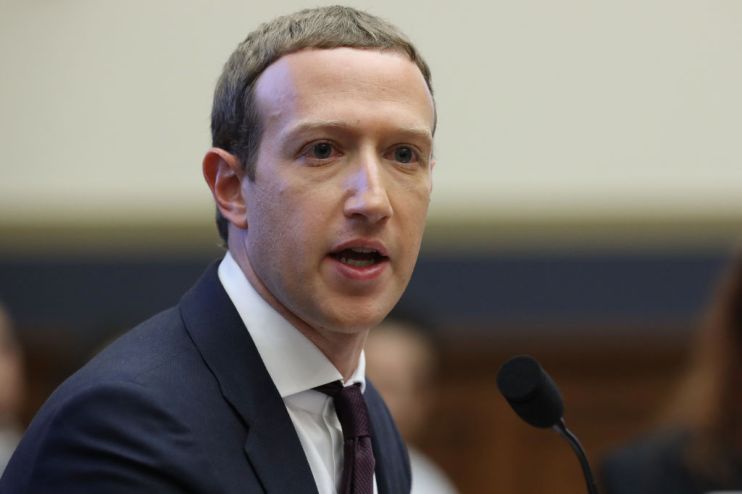Update UK electoral law on political ads, says Facebook

Facebook has called for UK politicians to regulate online political adverts, and said Britain’s electoral law “needs to be brought into the 21st century” as they defended the social media giant’s controversial decision to allow political adverts on its platform.
Head of UK public policy Rebecca Stimson said Facebook was “better prepared than ever before” for the upcoming general election, but said the company would not ban or fact-check political adverts.
Read more: California demands Facebook hand over documents in state investigation
“We don’t believe it is for a private company like Facebook to censor politicians,” she said.
Speaking to reporters on a conference call, Stimson said the platform has around 500 people working full-time on elections globally, and would assemble a team focused on the UK election closer to polling day.
Facebook: Ads ‘important’ for candidates
Asked about calls by campaigners for a moratorium on political advertising during the current election campaign, as no new legislation covering adverts can be introduced before the vote, Stimpson said: “it would be wrong to pull it at this stage in the process”.
She said access to Facebook advertising was “important” for candidates to “communicate their message” to the public.
Head of cybersecurity policy Nathaniel Gleicher said Facebook was “proactively looking” for instances of foreign interference in the election campaign but had not detected any so far.
“We haven’t seen sustained targeting… from overseas targeting the UK yet”, he said.
Earlier today, Facebook chief operating officer Sheryl Sandberg defended the company’s policy of not fact-checking political advertising as a critical part of “political discourse”.
“We believe political ads are really important. They’re a part of political discourse,” she said at a Bloomberg conference in New York.
Sandberg did not rule out Facebook reconsidering the policy, saying: “We’ll always reassess”, and added that the social network considered next year’s US presidential election as a “massive test for us”.
Facebook has come under sustained pressure from a number of sides to drop political advertising recently.
Twitter challenge over political ads
An announcement by Twitter boss Jack Dorsey last month that the social network would ban all paid political advertising was widely interpreted as Dorsey throwing down the gauntlet over the issue.
Announcing Twitter’s ban, Dorsey said political messages should “earn reach when people decide to follow an account or retweet”, and this “should not be compromised by money.”
Dorsey also described Twitter as “a small part of a much larger political advertising ecosystem”, and called for “forward looking political ad regulation”, in what has been interpreted as an appeal for regulators to assess the use of political advertising on Facebook.
Zuckerberg likens ad ban to ‘censorship’
Shortly afterwards, Zuckerberg defended his decision to allow paid political advertising on Facebook, suggesting that a ban would be akin to censorship.
“In a democracy, I don’t think it’s right for private companies to censor politicians or the news,” he said.
Speaking to investors following the release of Facebook’s quarterly results last week, Zuckerberg said it is “hard to define where to draw the line” on political advertising.
“Would we really block ads for important political issues like climate change or women’s empowerment? Instead, I believe the better approach is to work to increase transparency,” he said.
The Facebook chief executive also said that adverts from politicians would account for less than 0.5 per cent of the social network’s revenue next year.
Politicians and campaigners call for action
In an open letter to Facebook and Google earlier this week, campaigners and academics urged the tech giants to suspend political advertising until after the upcoming general election.
“With the announcement of the election coming in only six weeks, there is no time for regulations to catch up” with the fast-moving issue, read the letter, which was signed by representatives from organisations including Mozilla, the Open Data Institute and the University of Sheffield.
The UK’s ad regulator, the Advertising Standards Authority, does not currently regulate political advertising.
Read more: Facebook executives planned ‘switcharoo’ on data policy change
MPs from the digital, culture, media and sport committee had called on the government to urgently legislate to “bring electoral law in line with digital campaigning techniques” in July.
“Were an election or referendum to take place later this year, campaigns would be fought using electoral law that is wholly inadequate for the digital age,” said the committee.
Main image credit: Getty